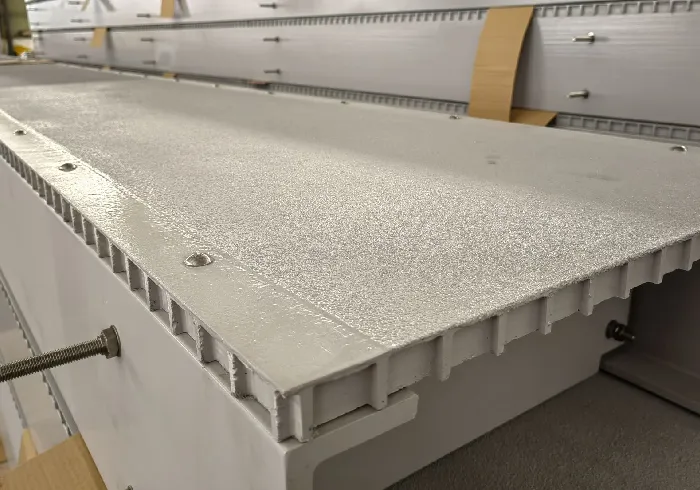loading...
- No. 9, Xingyuan South Street, Dongwaihuan Road, Zaoqiang County, Hengshui, Hebei, China
- admin@zjcomposites.com
- +86 15097380338
- Welcome to visit our website!
Essential Guide to Choosing the Right Water Softener and Filtration System for Your Home
The Importance of Water Softener and Filter Systems for Homeowners
Water quality is an essential factor that affects our daily lives, influencing everything from the taste of the water we drink to the longevity of our plumbing systems. Two critical components that can significantly improve water quality in homes are water softener and filter systems. Understanding how these systems work and their benefits can help homeowners make informed decisions about their water treatment options.
What is a Water Softener?
A water softener is a device designed to remove minerals such as calcium and magnesium from hard water. Hard water can lead to several issues, including mineral buildup in pipes and appliances, scale formation on dishes and fixtures, and reduced efficiency of water heaters. Water softeners typically use a process known as ion exchange, where hard water ions are replaced with sodium or potassium ions. This process not only prevents the negative effects of hard water but also improves the overall performance of soaps and detergents, leading to cleaner laundry and fewer soap scum issues.
Benefits of Using a Water Softener
1. Increased Lifespan of Appliances Appliances such as dishwashers, water heaters, and washing machines are less likely to suffer from scale buildup, leading to fewer repairs and a longer lifespan.
2. Enhanced Cleaning Soft water allows soaps and detergents to lather better, improving their effectiveness. This means cleaner dishes, brighter laundry, and less need for harsh cleaning products.
3. Improved Water Taste and Feel Many people notice a difference in the taste and texture of soft water. It feels smoother on the skin and can improve the overall drinking experience.
4. Less Soap and Detergent Usage Because soft water enhances soap efficiency, homeowners often find that they can use less soap, which not only saves money but is also better for the environment.
water softener and filter system

What is a Water Filter System?
While a water softener addresses the hardness of water, a water filter system focuses on removing impurities and contaminants. Water filtration systems can vary significantly in complexity, ranging from simple pitcher filters to more advanced under-sink systems or whole-house filters. They are designed to reduce harmful substances such as chlorine, lead, sediment, and bacteria, thereby improving the safety and taste of drinking water.
Benefits of Using a Water Filter System
1. Improved Water Quality Filters remove a variety of contaminants, providing cleaner and safer drinking water and helping to protect the health of your family.
2. Better Taste and Odor Many water filters effectively eliminate unpleasant tastes and odors caused by chlorine or other substances, making water more palatable.
3. Preventative Health Measures Regularly using a water filtration system can help safeguard against potential health risks associated with contaminated water sources, giving peace of mind to homeowners.
4. Environmental Benefits Investing in a water filtration system can reduce the need for bottled water, decreasing plastic waste and benefiting the environment.
Conclusion
Incorporating a water softener and filter system into your home can significantly enhance the quality of your water. By addressing both hardness and contaminants, these systems work together to provide safe, clean, and enjoyable water for your household. With the numerous benefits they offer, including improved appliance longevity, better cleaning results, and enhanced health safety, homeowners are encouraged to consider investing in these essential systems for their homes. Taking this proactive step towards water quality not only contributes to a healthier living environment but also promotes sustainable practices for future generations.
-
Premium FRP Handrail for All ApplicationsNewsAug.29,2025
-
Low Maintenance FRP Mini Mesh Grating ProductsNewsAug.29,2025
-
Innovative FRP Square Tubes for Modern Industrial SolutionsNewsAug.29,2025
-
FRP Water Storage Tanks Wholesale Solutions for Bulk BuyersNewsAug.29,2025
-
FRP Molded Grating Solutions for Diverse Industrial ApplicationsNewsAug.29,2025
-
Construction Advancements Through FRP Pultruded ProfilesNewsAug.29,2025
-
Why Choose FRP Railings, Guardrails, and Handrail Systems?NewsAug.29,2025
